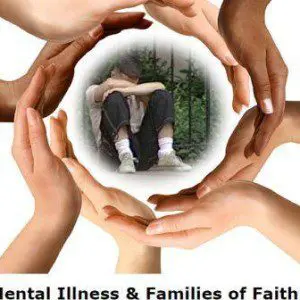 Here is our latest Blog. We hope that what we have provided will have a similar impact to the reader as an experience that brought us to tears did. We deeply pray that the subject of Mental Illness will be discussed, education occur and action taken.
Here is our latest Blog. We hope that what we have provided will have a similar impact to the reader as an experience that brought us to tears did. We deeply pray that the subject of Mental Illness will be discussed, education occur and action taken.
Our latest Diaconate class on April 20th included a communion service, a meeting with Dr. William Shaules, the facilitator for the Year 1 Candidacy class, and a two and a half hour discussion on Mental Illness (MI) led by Ed Vidaurri, a District Chief for the LA County Department of Mental Health (LACDMH).
Before the presentation, Ed asked us to discuss with a nearby classmate something that we would like to see happen around mental health in our Parish or a question about mental health. From this discussion Ed asked what questions we had. There were questions ranging from education and resources to parish involvement and legal implications. Ed did his best to answer the questions while providing additional information as well.
In terms of facts, here are a few: 75% of those who are homeless have some type of mental illness. 1 in 4 has a severe or serious MI. (The next time you are at Mass, imagine two of every person in each pew has a MI.) Those with a serious MI live 5 – 10 years less than those without one.
The LACDMH provides grants of $100,000 on an annual basis to individuals or organizations (even church communities) who want to try to develop some type of program to assist a group who has an MI. Proposals are submitted and the winner(s) are selected based on the amount of funds available for that year.
There are a number of places on the web for information. One such place in the DMH website: Http://dmh.lacounty.gov . We are in region 3 and there are individuals who will provide numerous types of education to any parish at no charge. Each area has a Service Area Advisory Committee (SAAC) that meets on a monthly basis to discuss MI issues and needs specific to our region.
Mental Illness is considered the last leprosy (in the 70’s it was cancer). We now know that most cancers were curable with early detection and that it wasn’t contagious, Mental Health is exactly the same. If the community is educated about MI, it will not treat people with a MI as if they were lepers. There is a great deal a community might do to help. Perhaps a Ministry made up of volunteers with a medical, substance abuse or mental health counseling background. Ed explained how a group of lay (no medical background) volunteers formed a ministry to help the homeless around their parish, they got to know those who were in the area, first offering assistance with basic necessities, sock, shoes, a bag lunch, water, they basics we all have at our disposal. The next step was to get them off the streets. They would offer one of them a place to live, supported by their parish. Seems like an easy task, but after years of living on the streets it was difficult to assimilate back into society. Subsequently, take care of their health issues, beginning with a diagnosis. Most homeless suffer from dehydration; they have a wariness of others and find it difficult to trust. While these volunteers work diligently to help the homeless and those with Mental Illnesses, it takes time and patience.
Nothing happens overnight, but with care and understanding, the loving grace that God offers each of us so freely, we all have an opportunity to reach out to that homeless person who is just a brief figure on the street, on the freeway off ramp, at the gas station. Next time you see a person who is different, standing at a street corner or in a parking lot, first offer up a smile, perhaps a kind word, a meal so that they have something to eat, at least for today. Most of us are afraid of the homeless, those who talk to themselves, who are dirty, ragged, who smell. They take us out of our comfort zone and we are repelled by the thought of their lives. We must look past the dirt and grime and smell, to see God’s child under that exterior.
We are not sure what impact three hours of training on Mental Illness can have on 100 potential diaconate couples and their facilitators. We know that we will now look at someone who has a Mental Illness as a member of our community. Not to be excluded, but included. That’s a start.
We have only four classes remaining this year. Two in Mission Hills, one in La Puente and our last class will be held at Valyermo (aka St. Andrew’s Abby) in the high desert near Palmdale.
We look forward to no longer being Aspirants, but being accepted as a Candidate Couple in Candidacy Year I.
If you are interested in becoming a Deacon Couple, please contact:
Diaconate Formation Office
Archdiocese of Los Angeles
3424 Wilshire Boulevard, 2nd Floor
Los Angeles, CA 90010-2241
213-637-7383
If you have any questions about the Diaconate, please ask us or send us an e-mail to wyb@wyb.com. We greatly appreciate your prayers and support and will continue to keep you informed of our journey.
Candy & Jay Krueger,
Aspirancy Year, Deacon Couple Formation,
Holy Family Parish, South Pasadena
Jay Krueger
Internal Assessment Coordinator
(818) 393-1076 (Office)
(626) 665-8989 (Cell)
“The acquisition of wealth is no longer the driving force; we work to better humanity.” Jean-Luc Picard, 24th Century
